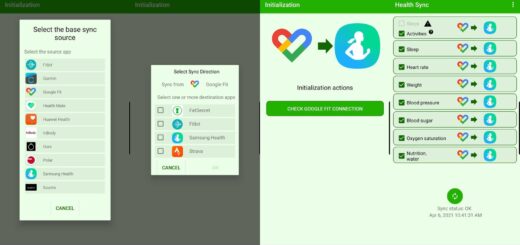Real Estate Course Duration: Facts & Figures
Are you considering a career in real estate? One of the key questions you may have is: How long does it take to complete a real estate course? The duration of a real estate course can vary depending on the program and the state. Let’s explore the facts and figures regarding real estate course duration.
Depending on the educational institution and the specific program, the length of a real estate course can range from several months to a couple of years. For example, El Camino College offers a Real Estate Associate of Science (AA) degree that typically takes up to two years to complete. This program is accredited by the state of California, ensuring high-quality education and training.
On the other hand, if you’re looking to become a licensed real estate agent, the time required can be shorter. In many states, the process typically involves completing the required pre-license education and passing the licensing exam. This can take anywhere from four to six months, depending on your pace of study and commitment to the program.
The specific number of hours required to complete a real estate course can also vary. Some programs require a minimum number of course hours, usually ranging from 60 to 135 hours. These hours are designed to provide comprehensive knowledge and practical skills in various aspects of real estate, including finance, law, appraisal, and more.
Key Takeaways:
- The duration of a real estate course can vary from several months to a couple of years, depending on the program and state requirements.
- An associate’s degree in real estate can take up to two years to complete.
- Becoming a licensed real estate agent typically takes around four to six months, including completing the required pre-license education and passing the licensing exam.
- The number of course hours required can range from 60 to 135 hours, providing comprehensive knowledge in various aspects of real estate.
- Choose a program that is accredited to ensure quality education and training.
Options for Real Estate Education
When it comes to pursuing a career in real estate, there are various educational options available to help individuals gain the necessary knowledge and skills. El Camino College offers a range of programs that cater to different interests and career paths in the real estate industry.
Real Estate Degree
El Camino College provides students with the opportunity to earn a Real Estate Associate of Science (AA) degree. This comprehensive program covers a wide range of real estate concepts, including finance, accounting, mortgage loan brokering and lending, and appraisal. By completing the real estate degree program, students gain a solid foundation in the industry and develop essential skills for success.
Real Estate Certificates
In addition to the degree program, El Camino College also offers certificates in Real Estate Appraisal and Mortgage Loan Brokerage. These focused programs allow individuals to gain specialized knowledge and skills in specific areas of real estate. The Real Estate Appraisal certificate provides in-depth training in property valuation, while the Mortgage Loan Brokerage certificate focuses on understanding the mortgage lending process.
Students enrolled in these certificate programs can expect to take courses that cover a wide range of topics, such as title and escrow, appraisal, accounting, property law, tax regulations, and business math. These courses are designed to equip students with the necessary skills to excel in the real estate industry and meet the demands of the market.
Developing Essential Skills
El Camino College’s real estate education programs aim to develop essential skills that are crucial for success in the industry. These skills include critical thinking, creative problem-solving, ethical business practices, and sound business management. By focusing on these areas, students are prepared to navigate the complexities of the real estate market and make informed decisions.
Moreover, the programs provide students with opportunities to network with industry professionals, gain practical experience through internships, and stay updated on the latest trends and practices in the real estate field. This comprehensive approach to education ensures that students are well-prepared to enter the industry with confidence and competence.
| Program | Description |
|---|---|
| Real Estate Associate of Science (AA) Degree | A comprehensive program covering various areas of real estate, including finance, accounting, mortgage loan brokering and lending, and appraisal. |
| Real Estate Appraisal Certificate | A specialized program focusing on property valuation and appraisal. |
| Mortgage Loan Brokerage Certificate | A certificate program that provides in-depth training on the mortgage lending process. |
Career Opportunities in Real Estate
After completing a real estate course and obtaining a license, individuals can pursue various rewarding careers in the real estate industry. The field offers diverse opportunities for professionals with different interests and skill sets.
Real Estate Sales Agent
One common career choice is becoming a real estate sales agent, helping clients buy, sell, or rent properties. Sales agents work directly with clients, conducting property tours, negotiating prices, and facilitating transactions.
Property Appraiser
Those with an interest in valuing properties can pursue a career as a property appraiser. Appraisers assess the value of properties for various purposes, including sales, mortgages, and tax assessments. They perform detailed analysis and provide reports that guide buyers, sellers, and lenders.
Property Assessor
Similar to appraisers, property assessors evaluate properties for tax assessment purposes. They determine property values to calculate property taxes and ensure fair taxation.
Real Estate Broker
Real estate brokers oversee real estate agents and manage real estate transactions. They have additional responsibilities, such as supervising agents, training newcomers, and maintaining compliance with legal and ethical standards.
Loan Officer
Loan officers work in financial institutions, helping individuals and businesses secure loans for purchasing properties. They assess the financial capabilities of borrowers, analyze loan applications, and guide clients through the loan process.
Median Salary
The real estate industry offers competitive salaries across different career paths. According to the U.S. Bureau of Labor Statistics, the median annual salary for real estate brokers is $71,000, while real estate appraisers earn a median salary of $73,000.
| Career | Median Salary |
|---|---|
| Real Estate Broker | $71,000 |
| Real Estate Appraiser | $73,000 |
The salaries mentioned here are approximate figures and can vary based on factors such as experience, location, and individual performance.
In summary, a real estate career offers a wide range of opportunities, from assisting clients in buying or selling properties to evaluating property values and managing real estate transactions. The industry provides lucrative salary prospects, allowing professionals to thrive in their chosen paths.
Benefits of Networking in Real Estate
Building a strong network is crucial for success in the real estate industry. By establishing connections and relationships with fellow professionals, you can gain access to valuable opportunities and receive ongoing support throughout your career. In El Camino College’s real estate program, students have the unique opportunity to connect with industry experts and learn from their wealth of knowledge and experience.
One of the major advantages of networking in real estate is the chance to be part of the vibrant Los Angeles real estate market. Los Angeles is known for its thriving real estate industry and being actively involved in this market opens up a world of possibilities. You can attend industry events, join professional organizations, and engage with other professionals to expand your network and create meaningful connections.
Networking also provides access to a wide range of real estate experts who can offer guidance and mentorship. These experts have invaluable insights into market trends, investment opportunities, and best practices, which can significantly enhance your understanding of the industry. By learning from those who have achieved success in real estate, you can gain a competitive edge and make informed decisions in your own career.
Continuing education is another essential aspect of networking in real estate. By staying updated with the latest industry trends and regulations, you can position yourself as a knowledgeable and reliable professional. Take advantage of the continuing education opportunities available to you, such as workshops, seminars, and online courses, to further enhance your skills and expand your knowledge base. This continuous learning will not only benefit your own career development but also enable you to provide exceptional service to your clients.
Benefits of Networking in Real Estate:
- Access to valuable opportunities and support throughout your career
- Opportunities to connect with industry experts and learn from their experiences
- Involvement in the vibrant Los Angeles real estate market
- Access to a wide range of real estate experts for guidance and mentorship
- Continuing education opportunities to enhance skills and knowledge
Networking in the real estate industry is like building a foundation for success. By connecting with professionals, engaging with experts, and continually expanding your knowledge, you position yourself as a valuable resource in the ever-evolving world of real estate.
| Advantages of Networking in Real Estate | |
|---|---|
| Access to Opportunities | Gain access to valuable opportunities for growth and collaboration. |
| Knowledge Sharing | Learn from industry experts and gain insights into market trends. |
| Industry Connections | Connect with other professionals and build relationships within the real estate community. |
| Enhanced Professional Development | Continually improve your skills and knowledge through networking events and continuing education. |
| Credibility and Trust | Establish credibility and build trust with your clients through strong industry connections. |
General Requirements to Become a Real Estate Agent
When pursuing a career as a real estate agent, there are specific requirements that individuals must meet to become licensed. These requirements encompass various aspects, including age, residency, education, and passing a licensing exam.
Age Requirement
One of the general requirements for becoming a real estate agent is meeting the minimum age requirement set by each state. In most states, individuals must be at least 18 years old, while some states have a minimum age requirement of 19.
US Residency
Another important requirement is having legal United States residency. This means that individuals must be either U.S. citizens or have the appropriate visa or documentation to legally reside in the country.
Pre-License Education
Prior to obtaining a real estate license, individuals are typically required to complete pre-license education. These education programs are designed to provide aspiring real estate agents with the necessary knowledge and skills to succeed in the industry. The specific requirements for pre-license education can vary by state, and individuals should consult their state’s Real Estate Commission or licensing authority for detailed information.
Real Estate Licensing Exam
Once the pre-license education is completed, aspiring real estate agents must pass a state-specific real estate licensing exam. This exam evaluates knowledge and understanding of real estate laws, ethics, contracts, and other essential topics. Passing the exam demonstrates the individual’s competency and readiness to work as a licensed real estate agent.
Meeting these general requirements is the first step towards becoming a licensed real estate agent. It is crucial for individuals to thoroughly research and understand the specific requirements set by their state to ensure compliance and a smooth transition into this rewarding career.

Steps to Become a Real Estate Agent
In order to become a real estate agent, there are several important steps to follow. These steps include understanding the state requirements for licensing, completing a real estate pre-licensing course, taking the real estate exam, and finding a real estate broker to work under.
- Research State Requirements: Each state has its own specific requirements for becoming a licensed real estate agent. It is crucial to thoroughly research and understand these requirements before proceeding.
- Enroll in a Pre-Licensing Course: To meet the state’s educational requirements, aspiring real estate agents must complete a pre-licensing course. These courses provide essential knowledge and skills needed to succeed in the industry.
- Choose Between Online or In-Classroom Education: Depending on personal preference and availability, individuals can opt for online education or in-classroom courses. Online courses offer flexibility, while in-classroom courses provide a more traditional learning environment.
- Apply for the Real Estate Exam: Once the pre-licensing course is completed, aspiring agents must apply to take the real estate exam. This exam evaluates the knowledge and understanding of real estate laws, regulations, and practices.
- Prepare for the Exam: Adequate preparation is vital for success in the real estate exam. This may involve studying course materials, taking practice tests, and seeking additional resources to ensure a strong performance.
- Pass the Real Estate Exam: The real estate exam is a significant milestone on the journey to becoming a licensed agent. Achieving a passing score is essential to move forward in the licensing process.
- Find a Real Estate Broker: After passing the exam, aspiring agents need to find a real estate broker to work under. A real estate broker serves as a mentor and supervisor, providing guidance and support as agents begin their careers.
Completing these steps successfully sets individuals on the path to becoming licensed real estate agents and opens up opportunities for a rewarding career in the industry.
| Online Education | In-Classroom Courses | |
|---|---|---|
| Flexibility | Flexible schedule, learn at your own pace | Fixed schedule, attend classes at specific times |
| Interaction | Virtual communication with instructors and classmates | Face-to-face interaction with instructors and classmates |
| Learning Environment | Access course materials from anywhere with an internet connection | Immersive classroom experience with immediate feedback |
| Self-Discipline | Requires self-motivation and self-discipline to stay on track | Structured learning environment with set schedules and deadlines |
Salary and Career Options for Real Estate Agents
The salary of a real estate agent can vary depending on various factors, including the number of properties sold and the commission percentage. On average, the mean salary for a real estate agent is approximately $65,850.
Aside from the salary, obtaining a real estate license opens up a wide range of career options within the industry. Some of these options include:
Real Estate Broker
A real estate broker is a licensed professional who supervises real estate agents and oversees real estate transactions. They provide guidance and support to agents and are responsible for managing the brokerage.
Real Estate Appraiser
A real estate appraiser evaluates properties to determine their market value. They assess various factors such as location, condition, and comparable sales to provide an accurate valuation.
Property Manager
A property manager is responsible for overseeing and managing residential or commercial properties on behalf of the owner. They handle tasks such as rent collection, maintenance, and tenant relations.
Real Estate Investor
Real estate investors purchase properties with the intention of generating income through rental or resale. They research and analyze markets to identify profitable investment opportunities.
Mortgage Loan Officer
A mortgage loan officer assists borrowers in obtaining mortgage loans. They evaluate loan applications, communicate with lenders, and guide clients through the loan approval process.
Real Estate Photographer
A real estate photographer specializes in capturing high-quality images of properties for marketing purposes. They use their skills to showcase the best features of a property and attract potential buyers.
These are just a few examples of the diverse career paths available to licensed real estate agents. The industry offers endless possibilities for professional growth and success.

State-Specific Real Estate Education Requirements
When it comes to obtaining a real estate license, each state has its own specific requirements. These requirements usually include completing pre-licensing education, which can vary in terms of the number of credit hours needed. It is crucial for individuals interested in pursuing a career in real estate to check their state’s Real Estate Commission website for the official pre-licensing requirements.
Understanding and fulfilling state-specific requirements is essential as it ensures compliance with the regulations and laws governing the real estate industry in each state. Failure to meet these requirements may result in eligibility issues or delays in obtaining a license.
Pre-licensing courses play a vital role in providing aspiring real estate professionals with the necessary knowledge and skills to excel in their careers. These courses cover topics like real estate principles, laws, contracts, finance, and ethics, among others.
| State | Pre-Licensing Credit Hours |
|---|---|
| California | 135 |
| Texas | 180 |
| Florida | 63 |
| New York | 75 |
| Illinois | 90 |
As an example, the table above showcases the credit hour requirements for pre-licensing courses in some states. It is crucial to note that these numbers can change over time, so it is important to verify the latest information from the respective state’s Real Estate Commission.
By fulfilling the state-specific education requirements, individuals can equip themselves with the necessary knowledge and skills to navigate the real estate industry and comply with legal obligations in their areas of practice.
How Long Does it Take to Become a Real Estate Agent?
The duration of becoming a real estate agent can vary depending on several factors. On average, it takes around four to six months to complete the required real estate courses and pass the licensing exam. However, the exact timeline can depend on factors such as the format of the courses (online or in-classroom) and the individual’s ability to pass the exam.
Conclusion
In conclusion, the duration of a real estate course can vary depending on the program and state requirements. It generally takes several months to complete the required education and pass the licensing exam to become a licensed real estate agent. However, the time invested in pursuing a real estate career can lead to rewarding opportunities in various sectors of the industry.
By undertaking a real estate course, individuals can gain the knowledge and skills necessary to navigate the complex world of real estate. Whether it’s learning about property law, finance, or ethical business practices, these courses provide a solid foundation for a successful real estate career.
Becoming a real estate agent opens up doors to a wide range of opportunities. From working as a sales agent, property appraiser, or broker to exploring roles in property management, investing, or mortgage lending, the career options are vast. With the right training and dedication, individuals can establish themselves as trusted professionals in the industry.
FAQ
How long does a real estate course typically take to complete?
The duration of a real estate course can vary depending on the program and state requirements. On average, it takes around four to six months to complete the required education and pass the licensing exam.
What options are available for real estate education?
Options for real estate education include earning a real estate degree or certificate. Programs may cover various areas in real estate, such as finance, accounting, mortgage loan brokering, appraisal, and more. Courses can focus on topics like title and escrow, appraisal, accounting, property law, tax regulations, and business math.
What career opportunities are available in the real estate industry?
A real estate career offers various opportunities, including becoming a real estate sales agent, property appraiser, property assessor, real estate broker, loan officer, and more. The median salary for a real estate broker is ,000, while real estate appraisers earn a median salary of ,000.
What are the benefits of networking in the real estate industry?
Networking in the real estate industry provides valuable opportunities and support throughout a real estate career. By connecting with experts in the field and learning from their experiences, individuals can gain insights and foster professional relationships. Additionally, being part of a vibrant real estate market like Los Angeles can provide unique networking opportunities. Continuing education can further enhance skills and knowledge.
What are the general requirements to become a real estate agent?
To become a licensed real estate agent, individuals typically need to be at least 18 or 19 years old (depending on the state) and have legal US residency. Additionally, completing the required pre-license education and passing the state real estate licensing exam are necessary steps in the process.
What are the steps to become a real estate agent?
The process of becoming a real estate agent involves understanding the real estate licensing requirements specific to the state, enrolling in a real estate pre-licensing course, applying to take the real estate salesperson exam, passing the exam, and finding a real estate broker to work under.
What salary can I expect as a real estate agent, and what career options are available?
The salary of a real estate agent can vary depending on factors such as the number of properties sold and the commission percentage. The mean salary for a real estate agent is around ,850. Obtaining a real estate license also opens up various career options within the industry, including becoming a real estate broker, appraiser, property manager, investor, mortgage loan officer, or even a real estate photographer.
What are the state-specific requirements for real estate education?
Each state has its own specific requirements for obtaining a real estate license. These requirements typically involve completing pre-licensing education, which can vary in terms of the number of credit hours needed. It is important for individuals to check their state’s Real Estate Commission website for the official pre-licensing requirements.
How long does it take to become a real estate agent?
The duration of becoming a real estate agent can vary depending on several factors. On average, it takes around four to six months to complete the required real estate courses and pass the licensing exam. However, the exact timeline can depend on factors such as the format of the courses (online or in-classroom) and the individual’s preparation for the exam.
















It's great that you talked about how business insurance can provide financial protection against unexpected events and help ensure the…
I like that you mentioned how business insurance is essential for protecting your bottom line and the long-term viability of…